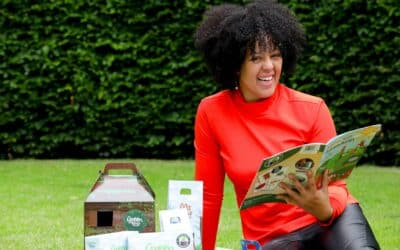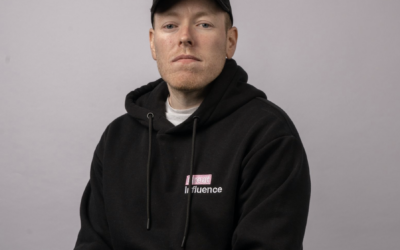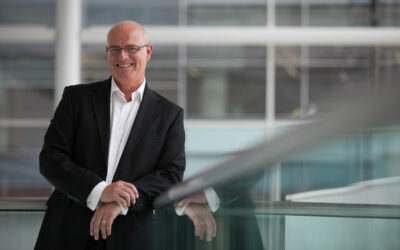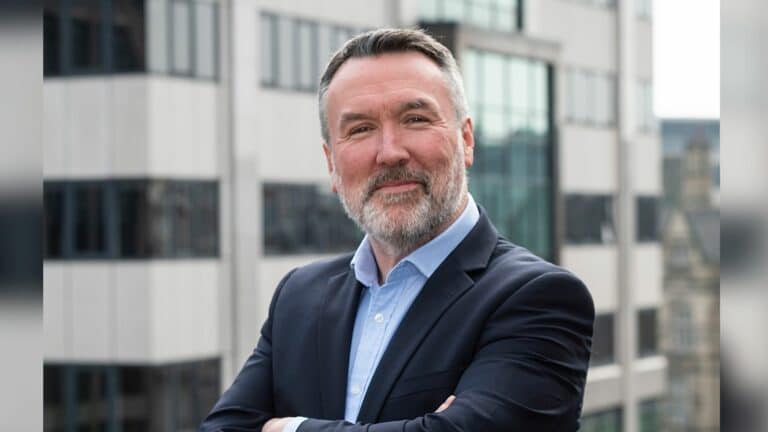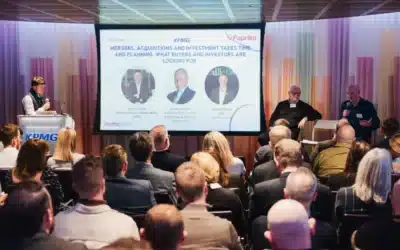Stuart Clarke MBE is the founder of Paceline, a Leeds-based communications consultancy that helps tech start-ups and scale-ups grow. He also helps individuals and companies develop connections with influencers across the North.
Clarke is also the festival director of Leeds Digital Festival, which is now in full swing running from 18 to 29 September this year.
He shares all the lessons he’s learnt across his personal life and career…
We found out the lessons Stuart has learnt…
Which single daily habit or practice could you not do without?
We live a few minutes walk from a large park (Roundhay in Leeds, for those who know it), and we take our dog for a long walk there. It not only starts the day with brisk exercise but enables me to organise my thoughts and plan my day. I work alongside my wife, so we treat it as a daily mini-board meeting.
What’s been your luckiest break?
I’ve had lots of luck in my career, but those breaks have all come through having a good network, where people are kind enough to introduce you to people who can help you. And building a network comes through consistency and turning up – sometimes it’s those events which you think are a waste of time, but you’re there, and you’re ‘lucky’ enough to meet a new key contact.
What’s your best failure?
A few years ago, we took on a new client, and even though I had a gut feeling about them, we started working with them because the money was good. For six months, neither myself or my team enjoyed working with them. No matter what we did for them, it wasn’t good enough, and they quibbled over everything. In the end, we terminated the contract. Since then, with every new client we’ve taken on, we’ve looked at culture and strategy fit first, and money a distant second.
What is the best investment you’ve ever made, either financial or time?
I set up my own company in 2013 (it’s our tenth anniversary in December); Paceline helps tech start-ups and scale-ups with PR and marketing strategy. I spent 20+ years in the corporate world and realised way too late the huge benefits of working on what you want, when you want – and, most importantly, being able to choose who you work with.
Which book would you recommend others to read and why?
Deep Work: Rule for Focused Success in a Distracted World, by Cal Newport. In this always-on world, it’s important to carve out time each day where you can truly focus on those tasks that need deep concentration, such as writing, without being interrupted every five minutes by notifications. I block out each morning for deep work without meetings and without checking email, social media, except at certain times. I’m not always successful, but it’s a good reminder to focus on what’s important.
What one piece of advice would you give your 21-year-old self?
Don’t be scared to join in! I stayed away from any networking groups, peer-to-peer groups and the like as I wasn’t confident and didn’t feel I had anything to contribute. Now, I advise people just to go along, and you’ll find most people feel the same way, but everyone can contribute in their own way. You’ll accelerate your learning and your network.
Who or what has had the single biggest influence on your working life?
I was the youngest of nine children brought up in a three-bed council house. My parents worked manual jobs, and there wasn’t a lot of money to go around, but mum and dad instilled a work ethic, a deep understanding of honesty and a sense of community in me. Anytime I’m unsure about which way to go, I go the way they would have.
Tell us something about you that would surprise people.
My first ‘proper’ job after graduating (I spent a year doing various jobs including paint spraying in a factory, working as a dustbin man, and selling furniture), was at HM Treasury in Whitehall. To be a successful civil servant, you need intelligence and dedication, so I quit and joined the marketing world after nine months!
How will the COVID crisis change work for the better?
I think it’s given people and companies a better idea of what’s important and how to balance focused work and creative, communal work. It’s also brought a focus on the importance of how being together is important at the start of a career, learning from just being around and listening to more experienced people. It’s hard to do that on a Teams call.
What does success look like to you?
Bringing people together. The whole ethos of the Leeds Digital Festival is built on collaboration and helping each other. With the PARSE peer-to-peer network that I run, we help startup founders accelerate their network, and the Leeds Tech Map enables firms to see possible collaborators in an easy way.

